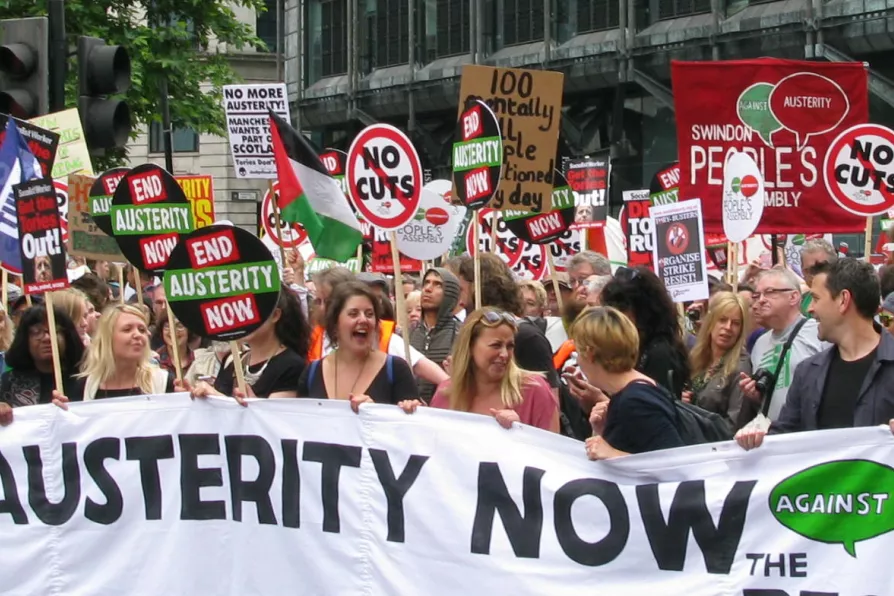ALAN McGUIRE welcomes the complete poems of Seamus Heaney for the unmistakeable memory of colonialism that they carry
Book review: Economics For The Many, edited by John McDonnell
Left economists outline a future Labour government's platform to radically transform society

 For the many: A People’s Assembly demonstration against austerity
For the many: A People’s Assembly demonstration against austerity
IN HIS introduction to 16 essays by more than a score of contributors, shadow chancellor John McDonnell points to how the 2007-8 great financial crash shattered the core myths of neoliberalism, namely that markets are the best possible basis on which to organise an economy and that wealth would trickle down from the top once barriers to corporate profit-making — notably state regulation and trade-union strength — were removed.
What has happened since then, he argues, is that company profits have soared while problems of poverty and homelessness have grown as a consequence of austerity.
Similar stories

Peter Mitchell's photography reveals a poetic relationship with Leeds

Ben Cowles speaks with IAN ‘TREE’ ROBINSON and ANDY DAVIES, two of the string pullers behind the Manchester Punk Festival, ahead of its 10th year show later this month

JOHN GREEN surveys the remarkable career of screenwriter Malcolm Hulke and the essential part played by his membership of the Communist Party

ANDY HEDGECOCK relishes two exhibitions that blur the boundaries between art and community engagement











